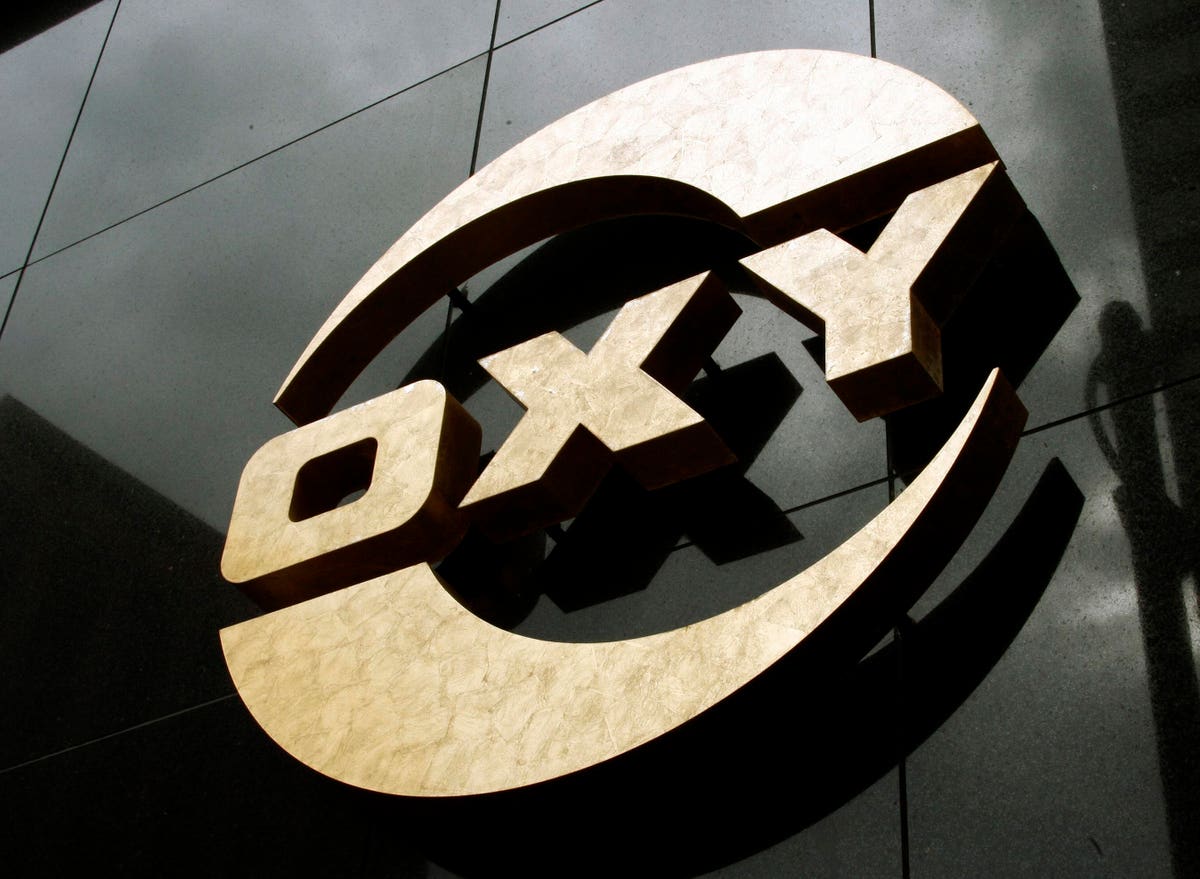Let’s postulate that the goal in stock investing is to buy low and sell high. If so, it makes sense to look at stocks that have been banged up, searching for ones that have recovery potential. That’s the goal of my quarterly Casualty List. Today I’ll highlight two large energy stocks that I think fit the bill, and a couple of other stocks.
Occidental Petroleum
OXY
OXY
Occidental, based in Los Angeles, is a favorite of the fabled investor Warren Buffett. Down about 10% in the second quarter as oil prices fell, the stock seems appealingly cheap to me. It sells for only seven times the past four quarters’ earnings.
Occidental has suffered five losses in the past 15 years, but lately profits have been strong. The company earned a 52% return on stockholders’ equity in 2022.
Buffett’s company, Berkshire Hathaway
BRK.B
Once famous (or infamous) for drilling in Libya, Occidental today is a big player in the Permian Basin (Texas and New Mexico) and is active in the Rockies. It also drills in Algeria, Oman and the United Arab Emirates.
Valero Energy
VLO
VLO
Valero, with headquarters in San Antonio, Texas, is a refiner and marketer. In a refiner’s world, the ideal is for oil to be cheap while gasoline, heating oil and jet fuel are expensive. The price gap between the price of oil and the price of refined products is called the crack spread.
Lately, the spread (the price of two barrels of gasoline plus one barrel of heating oil, minus the price of three barrels of crude oil) has been around $35, which is good for refiners like Valero. According to Bloomberg, the average spread from 1985 to 2021 was $10.50 a barrel.
I think the spread will remain above normal for the next two or three years. Communities oppose new refineries, so few if any will be built. To be sure, as people increasingly choose electric cars, that will crimp gasoline demand, but I figure the transition will take a decade.
Just recently, oil prices and the crack spread have been dropping, which is why Valero’ stock lost 15% of its value last quarter. It now sells for three times recent earnings and less than six times estimated earnings for this calendar year.
Acuity Brands
AYI
AYI
Acuity, based in Atlanta, Georgia, provides lighting products for factories, office buildings, stores, malls and residences. Its stock fell 11% in the second quarter, perhaps because investors fear a further decline in commercial construction.
Acuity boasts a strong balance sheet, with debt only 30% of stockholders’ equity. It has been profitable in each of the past 22 years. In the past four quarters it achieved a 19.6% return on stockholders’ equity, which I consider excellent.
For the past six years, Acuity has been buying back its own stocks. I expect that will continue.
Columbia Sportswear
COLM
COLM
Knocked down 14% in the latest quarter, Columbia Sportswear has descended into what I consider a reasonable price range.
In the past year, sales grew 14% but earnings fell as costs rose. Analysts expect profits to rebound in 2024 and 2025. I think that’s a reasonable hope, as Columbia has managed to increase its profits at a 12% annual rate over the past decade.
In the past year, Columbia stock has been as high as $98 and as low as $65. It’s about $77 now. I think it’s an okay buy at this level, and I would be more enthusiastic should it fall below $70.
Past Record
The Casualty List you’ve just read about is the 81st one I’ve compiled, beginning in 2000. One-year results can be calculated for 77 of the lists. The average 12-month gain on my Casualty selections has been 15.4%, which compares well with 10.4% for the Standard & Poor’s 500 Total Return index over the same periods.
Of the 77 lists, 49 have been profitable, and 39 have beaten the S&P 500. Bear in mind that my column results are hypothetical and shouldn’t be confused with results I obtain for clients. Also, past performance doesn’t predict the future.
My selections from a year ago were weak, managing only a 7.3% return while the index advanced 18.3%. Paramount Global (PARA) depressed the results with a 34% loss. Atlas Air Worldwide Holdings (AAWW) was the standout: It was acquired by Apollo Global Management
APO
Disclosure: I own Paramount Global personally and for most of my clients. I own call options on Occidental Petroleum in a hedge fund I run.
Read the full article here













